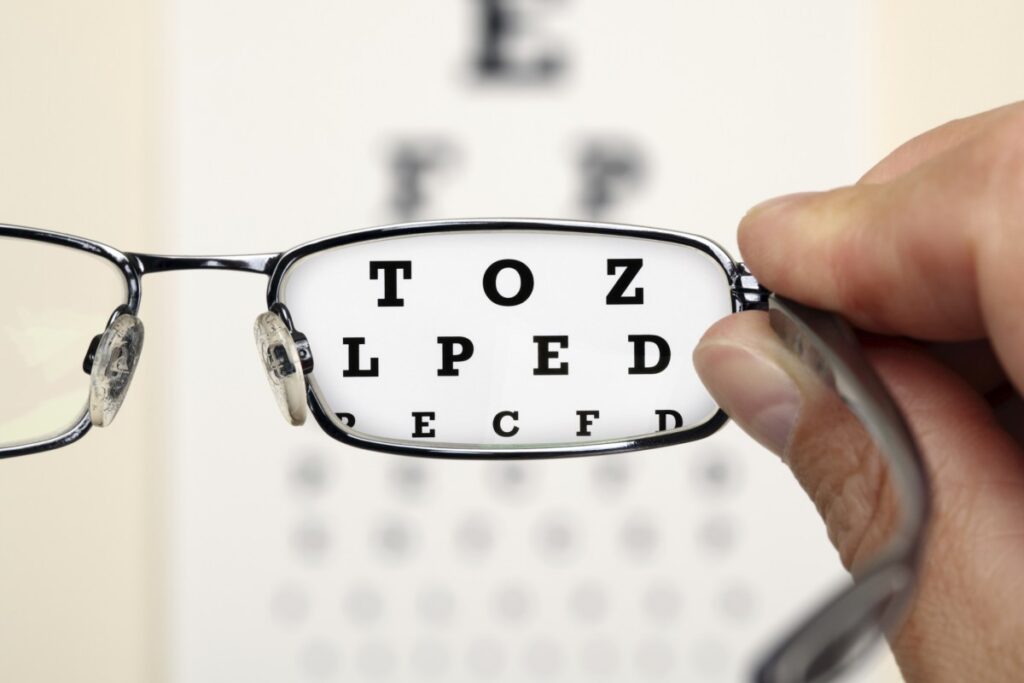
Vision insurance helps in reducing costs incurred when receiving eye care. The plan caters to the expenses of vision care as long as a monthly premium is paid. The majority of the population uses multiple vision improving methods such as; contact lenses, glasses, or laser eye correction surgery. It would be wise to consider getting vision insurance to pay for your eye care, depending on how often you need eye examinations or contact replacements.
The difference between a vision insurance plan and a vision discount plan is that with a vision discount, the monthly premiums cost a lot less, but you end up paying more on eye care visits than you would with an insurance plan. You could visit HealthMarkets, an insurance agency that can help you find a plan that is suited to fit your eye care expenses and your budget.
How Vision Care Insurance Works

It is a known fact that the ability to see is equally as essential as your overall health. Purchasing vision care insurance can either be done through an individual policy or your employer. This way, you can specify whether you will pay your premiums through checks or they will deduct it from your salary, respectively. As a result, you will receive contact lenses, discounts on vision exams and glasses. For more details, visit www.contactlenses.co.uk.
There are vision care plans that may require you to seek treatment from an ophthalmologist or optometrist. This means that you have to consult an optometry professional granted a license to practice by the state. In case your boss offers you vision care insurance, you will only get the opportunity to sign up once a year over the yearly open enrollment period. It is important to note that most individual plans will charge an enrollment fee paid only once, alongside a monthly premium.
Whether you obtain your insurance coverage through work or individually, you should ensure that you compare the policy’s total annual cost to the yearly vision care cost to ensure you are getting value for your money.
What Vision Insurance Reimburses

Most vision plans usually cover for a fraction of :
- Contact lenses
- Glasses lens protection
- Vision tests and eye exams
- Eyeglass lenses and frames
- Discounts on corrective eye surgery
Although vision insurance pays for eye care expenses, it doesn’t usually pay when the eye problem is related to any medical issue. If a medical problem is detected during a visual examination, your optometrist will naturally refer you to an ophthalmologist who is more of a medical eye doctor.
How to Utilize Your Vision Insurance Benefits

Having a good vision will improve all virtual elements of your life. Achieving this at an affordable price would be more significant, and that is why using the benefits that vision insurance offers will be a beneficial means of getting healthy eyes.
The following are guidelines that will ensure that you maximize your vision insurance benefits:
Step1: Contact an eye doctor. After enlisting, you will be able to access and use your VPS benefits within the first week. It would be best if you got in contact with an online doctor or eye care professional in your vicinity.
Step 2: Schedule an appointment. Plan a position to get an extensive eye examination once you are in touch with an eye doctor.
Step 3: Use your eye insurance to acquire your eye care items. When undergoing the examination, your doctor will prescribe a modification of your current lenses or prescribe different corrective lenses altogether. Saving up on costs of frames and lenses is a vital benefit of visual insurance and should be exercised.
Step 4: Make annual visits. You must get an annual eye exam regardless of whether you feel the need to or not. Doing this will help you reaffirm and retain good eye health. To maximize your insurance benefits, see your eye doctor annually for a thorough eye examination.
What are the Limitations of a Vision Care Insurance Plan

In addition to the limitations of vision care insurance that we have already outlined, here are more factors in evaluating before determining whether you need to acquire coverage:
- Other plans have a waiting period that can last between 36months and 30days. Over the waiting period, benefits obtained will reduce or be nonexistent. The waiting period’s relevance is to dissuade individuals from postponing to sign up for vision care insurance until they come across an expensive situation. Insurance companies can only deliver benefits when people require them the most through dissipating risk among an enormous group of people. Usually, some of these people are not healthy, and some are. This groups of people will encounter problems at different times, but insurance companies often need premiums from healthy individuals to compensate for the expenses incurred by an unhealthy individual
- A vision insurance plan only offers a cover for basic lenses for glasses. In case you need anti-glare or lightweight lenses, you will have to cater for all the extra expenses
- Most plans will either pay for contact lenses or glasses but never both during the benefit period. In an instance where you would need to revamp both, it wouldn’t be possible. You will be forced to get them 12 months a part
- This insurance plan covers frames for glasses only within a specific price range. If the frames you want are above that range, only a part of the cost will be covered, or the plan would cover the retail cost, and you will be required to settle the wholesale
- Acquiring vision insurance will not be hindered by any pre-existing conditions, which isn’t the case with ordinary health insurance. However, the pre-existing condition itself might not be covered
Crux

Determining the essence of purchasing vision care insurance could be complicated, but it is not essentially an overall good or bad deal. Your decision to buy a policy will depend on; the kind of eye services and products you need, how often you’ll need them provided, and the policy options. To acquaint yourself with the products and their values, get some research done before signing up.













